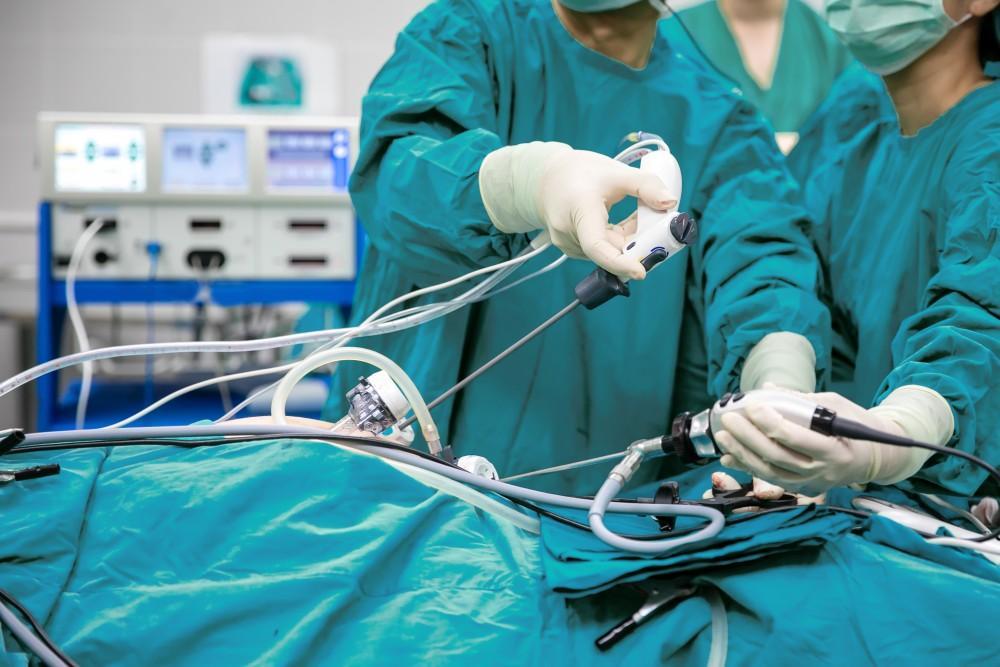
Do All Hernias Need to Be Surgically Repaired?

You’ve been diagnosed with a hernia, and you’re wondering what the next steps entail. In many cases, but not all, a surgical hernia repair may be your best course of action, especially if the hernia is problematic or symptomatic.
Should you opt for this procedure, it might be helpful to know that about 1 million hernia surgeries are performed each year in the United States, making it one of the more common general surgeries. The highly adept team at Rockwall Surgical Specialists has extensive experience with hernia repairs, so you’re in very good hands.
Here, we explain more about the types of hernias to help you determine whether you might need to have us surgically repair your hernia.
Hernias 101
The term “hernia” describes a condition in which tissue or a piece of an organ protrudes through a weak spot in a neighboring tissue. To better illustrate this, here’s a look at the different types of hernias and how we go about treating them:
Inguinal hernia
Of all the different types of hernias, this is the most common — 80% of all hernia surgeries performed repair inguinal hernias.
An inguinal hernia is located in your groin area and occurs when fat or tissue — typically a piece of your intestine — protrudes through a weak spot in the lower part of your abdominal wall. Inguinal hernias strike men far more than women; the lifetime prevalence for an inguinal hernia in men is 27% as opposed to just 3% in women.
Inguinal hernias typically require surgical repair to prevent a blockage in your small intestine, which is a very serious complication.
Incisional hernia
These types of hernias occur on the heels of a previous surgery, which can weaken tissue. For example, if you’ve undergone a surgical procedure in your stomach, your odds of developing an incisional hernia are fairly high — 15%-20% of people who have stomach surgery develop an incisional hernia.
If your incisional hernia is small and doesn’t present symptoms, we might recommend a wait-and-see approach. We closely monitor the hernia, and should symptoms develop — including discomfort and stomach upset — we can take action and repair the hernia.
Femoral hernia
If a piece of your lower intestine or fatty tissue pokes through a weak spot in your femoral canal and into your groin, we call this a femoral hernia.
This type of hernia develops more often in women than in men, but it’s not terribly common overall. When it does occur, we typically recommend surgical repair because a femoral hernia can lead to complications, such as strangulation of bowel tissue.
Hiatal hernia
This hernia is located farther up your abdomen and occurs when a piece of your stomach protrudes through your diaphragm. If your hiatal hernia doesn’t present any symptoms — such as acid reflux — we can often leave well enough alone. If, however, you’re experiencing symptoms, surgical repair may be warranted.
Umbilical hernia
Approximately, 20% of infants under the age of 6 months have an umbilical hernia, and most resolve themselves on their own. If the hernia persists, however, surgical repair may be a good idea to prevent further issues down the road, such as a piece of tissue becoming entrapped.
Do you need surgery for your hernia?
We take each hernia on a case-by-case basis, and the best way to find out whether you might need surgery to repair your hernia is to schedule a consultation with our experts. To get started, contact one of our locations in Rowlett, Rockwall, Greenville, Terrell, or Forney, Texas, to set up a consultation.
You Might Also Enjoy...


Is It Time for Your Colonoscopy?

Why Your Weight and BMI Are Important Barometers of Your Overall Health

When Does a Hiatal Hernia Require Surgery?

5 Compelling Benefits of Laparoscopic Surgery

